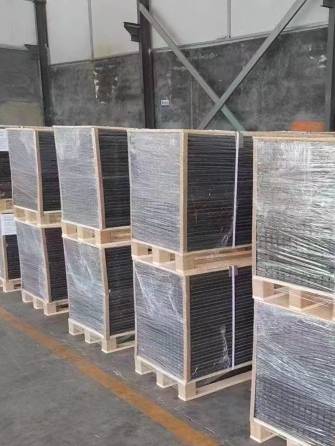The Versatility and Sustainability of Wood Panels
Wood panels have long been celebrated in the world of construction and interior design for their versatility, aesthetic appeal, and sustainability. These engineered wood products, which include plywood, oriented strand board (OSB), and medium-density fiberboard (MDF), serve a wide variety of functions, making them integral to various sectors ranging from residential construction to furniture design.
One of the primary advantages of wood panels is their structural integrity. Plywood, for instance, comprises thin layers of wood veneer that are glued together, typically in a cross-laminated pattern. This unique construction process enhances its strength and stability, allowing it to withstand various stresses and loads. As a result, plywood is frequently used in flooring, roofing, and wall sheathing, providing a reliable basis for buildings and other structures.
In addition to strength, wood panels offer immense design flexibility. They can be cut, shaped, and finished in countless ways, allowing designers and architects to create bespoke solutions tailored to specific needs. This adaptability extends to their aesthetic qualities as well; wood panels can be stained, painted, or left natural to match any design scheme. Whether you are looking for a rustic charm or a sleek modern finish, wood panels can complement any interior space.
wood panel

Another significant benefit of wood panels is their sustainability. As awareness of environmental issues increases, the demand for eco-friendly building materials has risen dramatically. Wood, being a renewable resource, presents a more sustainable option compared to many synthetic alternatives. Many manufacturers now source their wood from responsibly managed forests, ensuring that their products are both environmentally friendly and sourced ethically. Additionally, the production of engineered wood panels is often more efficient than solid wood, as it makes use of smaller and often lower-grade wood pieces that would otherwise go to waste.
Moreover, advancements in technology are enhancing the sustainability of wood panel production. Innovations such as the use of non-toxic adhesives and finishes help reduce the environmental impact associated with traditional wood processing. As a result, many wood panel products on the market today meet strict environmental standards, making them a viable choice for eco-conscious consumers and builders.
The multifunctional nature of wood panels also extends into the realm of sound and heat insulation. When installed correctly, wood paneling can act as a sound barrier, absorbing noise and reducing echo within a space. This property makes wood panels particularly popular in commercial settings, such as offices and conference rooms, where quietude and concentration are necessary. Additionally, the thermal properties of wood help regulate indoor temperatures, contributing to energy efficiency and comfort.
In conclusion, wood panels stand out as a versatile, sustainable, and aesthetically pleasing option for various applications in construction and design. Their strength, adaptability, and environmental benefits make them an appealing choice for builders, designers, and homeowners alike. As the industry continues to prioritize sustainability and technological innovation, wood panels are likely to play an even more prominent role in creating beautiful, eco-friendly spaces. Their enduring popularity and functionality showcase the timeless appeal of wood in modern construction and design endeavors.
